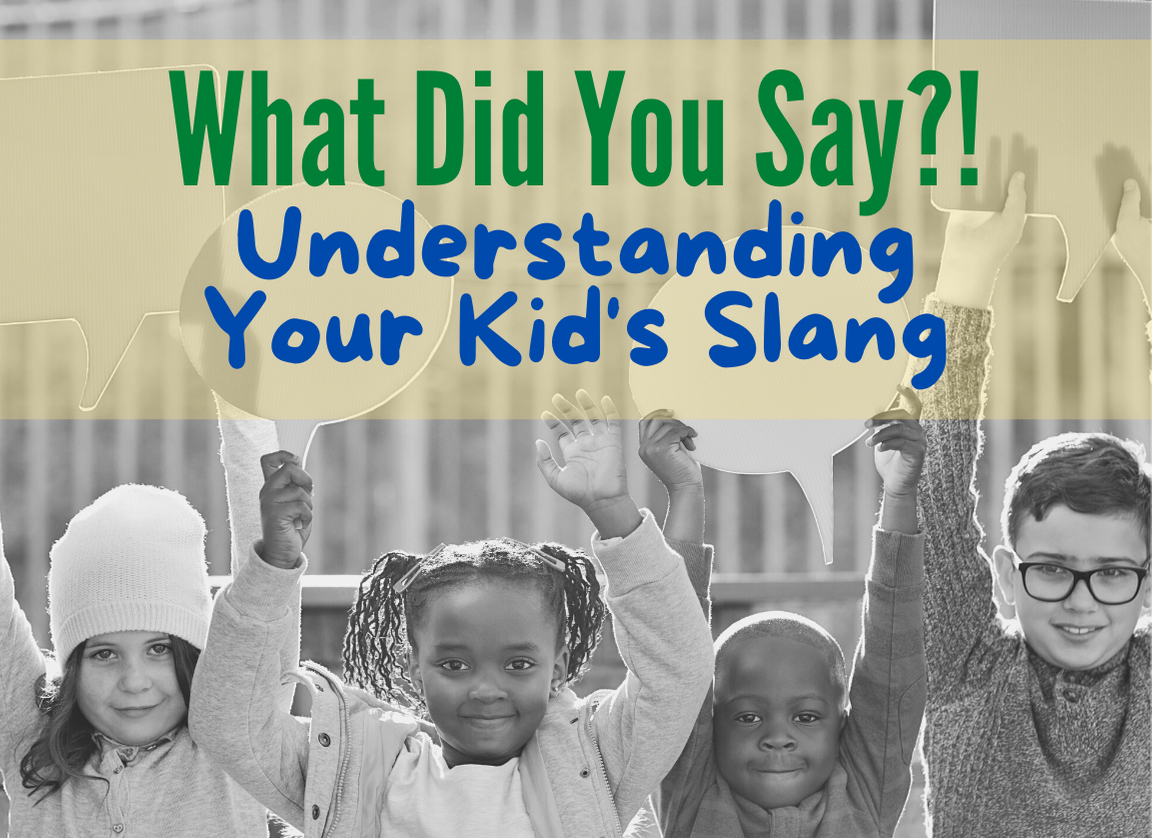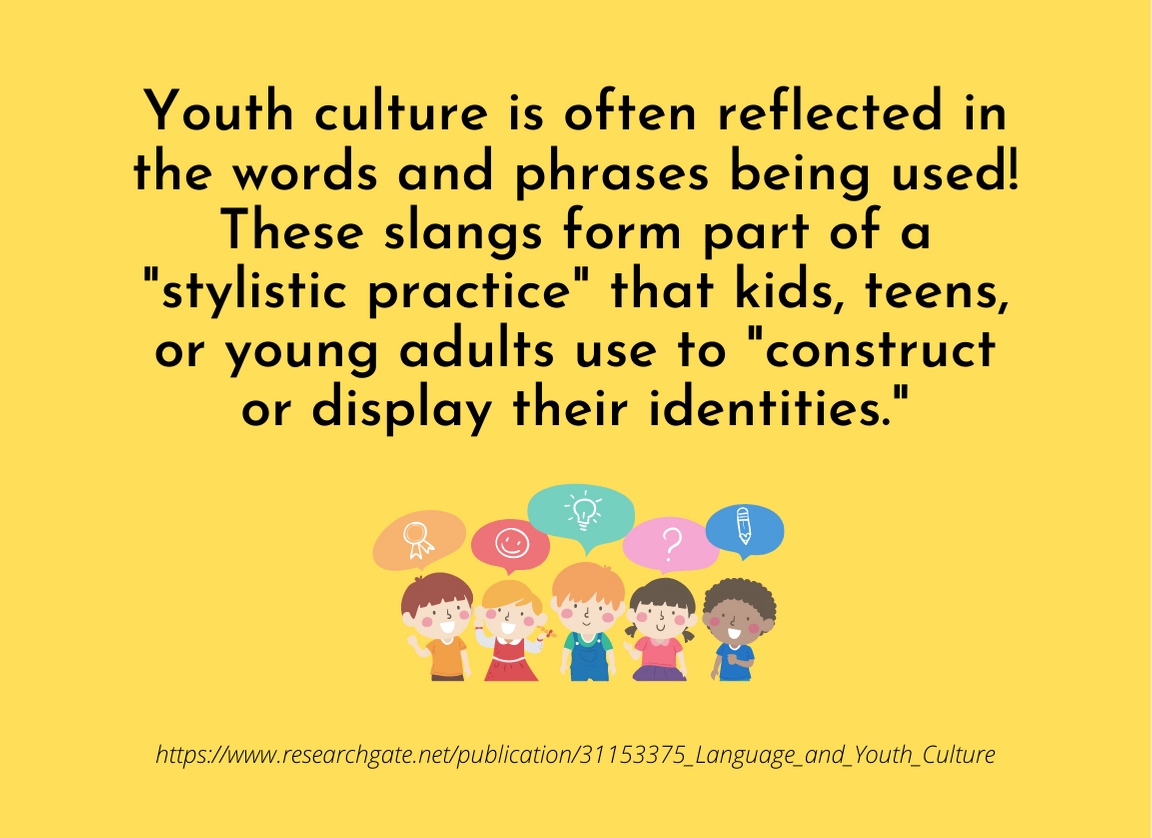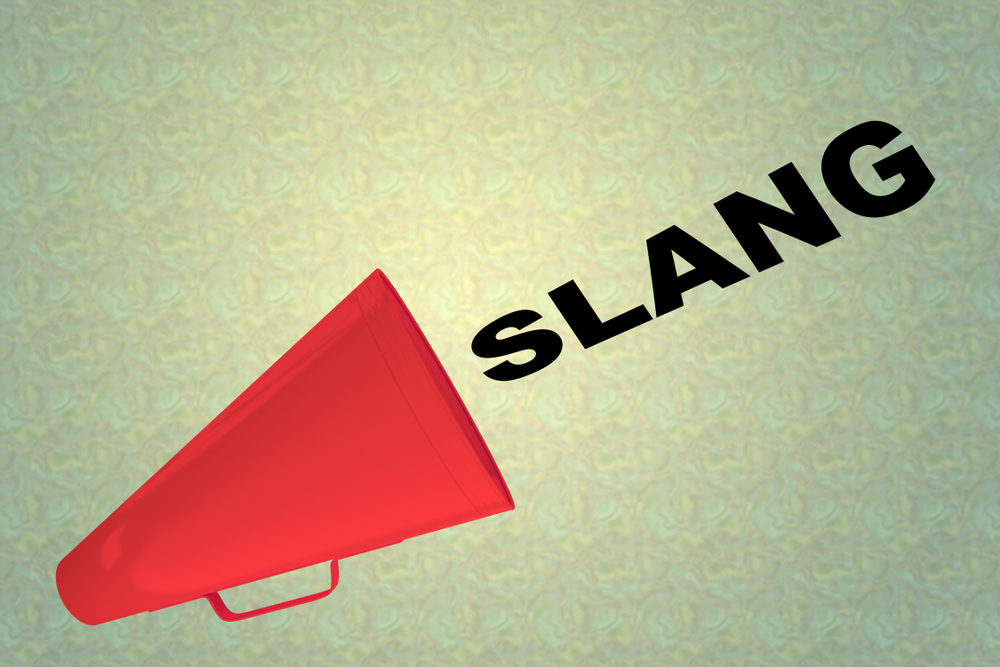Parents constantly ask questions about what they can do to support their children better. Understanding what they are saying is essential to help them communicate, and knowing their words is a great starting point!
The teenage generation has its own slang terms—some of which express emotions, describe what is happening in their lives, or are just short terms of the things and topics they frequently talk about. Youth culture is often represented by these words and phrases. It forms part of a “stylistic practice” that kids, teens, or young adults use to “construct or display their identities.”
Many of those words and phrases disappear just as fast as they appear. In other cases, they develop over time and become common words or phrases, understandable for almost everyone. However, if you try to understand what your teen or tween is saying, you can watch for warning signs that they need support from those who matter in their lives, although this may not be their intention.

Parents Wonder: Are We Getting Lost in Translation?
Teens and tweens sometimes sound like they speak another language. Sounds absurd, but it is, in fact, true!
Being in a room with your teen simultaneously and not knowing what they are saying may be the most frustrating parent experience. Most parents get caught up in it more often than they would think. They nod their heads in agreement to pretend that they understand the context, even when they’re completely lost.
Different words mean different things to other generations. One year, a word may mean one thing, while the next might mean something entirely different. Knowing how to translate your child’s Slang is almost as hard as studying linguistics.
But fret not; this article will help you understand your kid’s vocabulary better by getting yourself familiar with some terms used among teens and tweens. It’s also imperative to realize that both of these age groups use different slang terms. Although some words are pretty similar, some words are commonly used in different generations. We’ll be tackling some below.
What Is Slang?

In Slang, the word or phrase is very informal, used more for conversations than writings. Their meanings are restricted in specific contexts. Often, teenagers and even tweens take words from everyday speech and distort them so that people from other generations or you as their parents don’t understand what they are saying despite being able to hear them. As a result, knowing the terminology can make a big difference in how parents talk to and understand their kids.
Tweens Talking In Codes (9-12 years old kids)
Young people go through the tween years, commonly known as the “in-between” years. These kids belong to age groups from 9 to 12 years old. Uncharacteristically, the child has gone from being a cute toddler to being on the verge of teenagerdom as well. Many people wrongly think that kids hit the tween age; they are free to do whatever they want. Although a bit of freedom won’t hurt, you should still monitor their whereabouts. As a parent of tweens, the ever-expanding online world and social networking websites exacerbate the challenges.
You realize how time flies when your tween suddenly stops being your little girl or boy. No longer do you call your neighbor to ask how your kid is doing while visiting next door! Now, parents have endless options to keep track of their children’s activities: parental control apps, monitoring applications, and some helpful tracking apps. They all serve the same purpose: keeping an eye on what the kids do and who they’re interacting with.
Check out these slangs used by tweens, and you can better be informed with what they mean:
9
Nobody would ever think that this number could mean something else, right? Your tween might be discussing something that your tween doesn’t want you to know if the number 9 suddenly appears somewhere on their device for any reason. In the tweens’ vocabulary, the number 9 means “a parent is watching.” This succeedingly warns their friend whom they’re chatting with that they basically can’t continue talking or doing something together that may not be approved by the parent. It’s never a good idea to spy on your tween, but it’s still good to know the standard abbreviations! For instance, if they type two 9s or 99, it’s a sign that the parent already left.
SMH
Texting your tween or teenager will only lead to confusion if they respond with many words or letters that you do not understand. An excellent example of this is SMH. You may have tried thinking of all the possible words and phrases that could mean this abbreviation, but you’re likely to fail if you’re not a tween yourself.
Although that may appear confusing to you and others, it simply means “shaking my head.” So the next time you receive a text with these letters coming from your tween, yes, he or she is indeed shaking their head at you. This will, however, make you aware that you have done or said something embarrassing or something wrong that they don’t agree or approve of.
#Goals
You may already know the use of hashtags and their purpose. What you don’t know is #Goals. Although it’s rampantly being used these days in the online world, you can see that it’s often combined with other words. Take #RelationshipGoals, #SquadGoals, or #CoupleGoals, for example. So when your tween posts something online using #FriendshipGoals, it means they appreciate their BFFs and they have enjoyed something together that they may not be able to do so with their other friends.
You can also use goals as tween-speak, like “your outfit is goals.”
Ship
A ship is no longer a word that refers to the mode of transportation on the sea. There’s nothing wrong with being confused with this word. It is often used as a slang word that refers to a fictional romantic relationship between two characters who aren’t romantically linked in reality. For example, you can say, “I ship my best friend and my brother.”
To get into the current tween slang lingo, someone might say, “John is my ship,” to indicate that they have a crush on that person. Even though it’s not as bad as the rest of the slang, it might be enough to surprise some parents when they learn that their tween has a crush. After all, you may have wished to keep your tween forever young and innocent, right?
Squad
Besides family, you may hear your kid talk about their squad. This word refers to their closest friends, the individuals they trust the most in their inner circle. It can be quite annoying for your child to deal with an issue with a family member, but if they’re dealing with someone from their squad, it will be a lot worse. You know what it feels like when one of your best friends and you have a falling out, and this is precisely the type of relationship your kid has with their squad.
LMIRL
LMIRL are some letters that you should be on high alert for. It is probably already well known that IRL stands for In Real Life, while LMIRL stands for Let’s Meet In Real Life. If your tween has used these letters to someone online, you must take the right approach in discouraging them. This acronym isn’t going to spare you from the dangers (it’s even one that you must never forget). Considering that many adults pose as children on the web, we are all too aware of the dangers of such scenarios!
Keep in mind that there is danger everywhere, including in social media and apps that appear to be designed for children. The next time your tween uses this term, ask and never ignore what might happen next.
Finsta
It does not necessarily mean that you know your tween, even if you think you do. Moreover, every modern-day parent must learn this important lesson: Your belief that you know all about your child’s account does not mean that you do. You should be aware of the fact that fake Instagrams (Finsta) exist. Your fake tween-following account may not represent what your child genuinely cares about.
Teens Talking In Codes
The teenagers of today have a secret language, like the teenagers of previous generations. They do it to feel cool, identify with their friends, and keep secrets from adults surrounding them. There are two choices for a parent. In such cases, you can either try to understand what your kids are saying or remain clueless.
Even though you are a parent, it probably still feels the same as a teen. Neither the emotions nor the themes of adolescent life change much from generation to generation. However, Slang is undoubtedly one thing that changes. Whether you are a parent or a teacher, it’s helpful to grasp what their random code words and expressions mean every once in a while.
You may feel as if you’re learning a foreign language, but this should help you comprehend parts of your teen’s conversations!
Lit or GOAT
Back in your youthful years, you may have used words like “neat” or “cool” to express something excellent or good. But in this current generation, teens use two words, such as “Lit” or “GOAT,” which literally means “Greatest Of All Time” to a lot of young people.
Bae
Teens often use this term to refer to a romantic partner, best friend, or someone they are deeply in love with. It may be an abbreviation for “Before Anyone Else” for some millennial generation members.
This English word could take several forms. A nickname is formed from the written form of the word “babe” used as a name for a loving partner, usually one’s wife/husband or girlfriend/boyfriend.
Savage
Being savage usually pertains to ignoring the consequences of an action. It does not necessarily mean being arrogant; it often alludes to accomplishing a ridiculously challenging or complex act and making it look pretty simple and straightforward.
Bye Felicia
It’s essential to pay attention to this sign whether your teen or tween delivers it or receives it.
“Bye Felicia” is an obnoxious way to write someone off, like telling them they don’t matter anymore. This kind of behavior is seen as a brutal rejection by teens, so you might want to speak with your child about this behavior, particularly if they say this phrase. If your child hears it, initiate a conversation to understand the problem, assess the situation, and decide to take action.
Extra
In the past, extra meant something like doing something or having something more than is needed. However, your tween or adolescent might use it differently. Extra is a level that surpasses “over the top.” It can be applied to someone who is just too hard on themselves.
An irritating friend might throw an elaborate gathering, while a casual meeting would make as much sense. In contrast, using it does not necessarily mean showing off or being excessively boastful. You can always give a cute compliment to a friend who dresses extra even when the occasion doesn’t call for it.
Basic
It’s called basic when things are boring, unoriginal, and standard. Yet another term that has roots in traditional usage but has morphed into a modern and useful one. When girls and young women are told they are Basic, they are predictable and without personality. However, many things, such as brands, bands, issues, and even events, could be considered Basic. So this is not entirely something negative.
Draking
Teenagers locking themselves in their bedroom, playing some sad music, and crying for hours on end is an all-too-familiar scenario. To teens today, this is called Draking. This term is attributed to Drake, a famous Canadian rapper, and the feelings evoked by his music. Draking can also mean exhibiting excessive emotion or acting out of one’s character with overwhelming emotion.
Final Thoughts
Understand standard slang terms used by teens so you can be aware of their online and offline conversations. Make sure you learn your child’s words so you can participate in the discussion or at least comprehend them. Keep an ear open to new terms and take the time to research what your teen and their friends are saying. Better yet, ask your kid about it!








